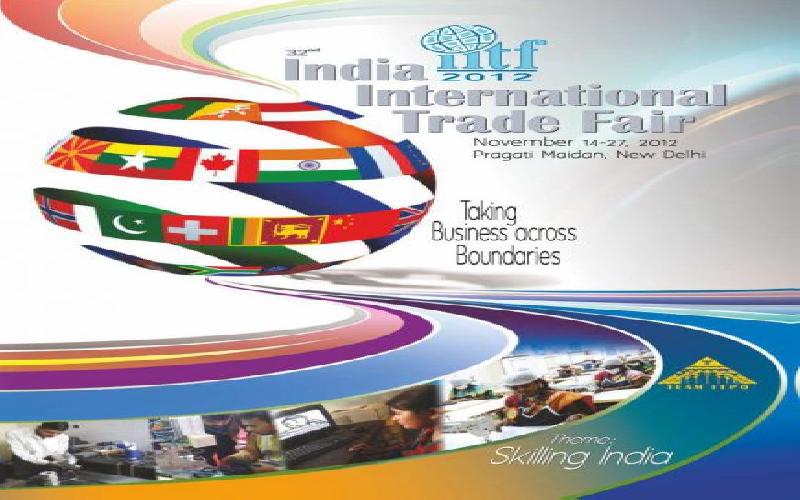Competing for International Trade


All trade involves exchange of goods, but trading across political boundaries of nation states, accompanied with the need to adjust to different regulations, regimes, currencies, culture and markets necessitates additional preparedness. To being with, it is important to be aware of the idiosyncrasies of sovereign markets where one wishes to trade, understand the risks posed therein and be prepared for it
Competing for international Trade requires a somewhat different set of skills compared for competing in local markets. It needs a much greater preparation, understanding of the local context, including cultural preferences, demand factors and the regulatory environment. It calls for a far greater extent of flexibility and innovation, as well as a capability of re-invent the enterprise on regular basis.
Competing successfully in international trade is a challenge for a business enterprise as well as those governments that wish to facilitate their business enterprises overseas. Both need to work hard for achieving this and what they need to do is often not the same.
For a business enterprise, probably the first important step is an effective market survey regarding the willingness of buyers in the target overseas market to pay for your product. It is important to understand the dynamics of demand for a product. For example, in a place where the winter is very short and the minimum temperature hardly ever falls below 15 degree Celsius, the scope for marketing house heating equipment is likely to be very small.
Similarly in a country where there are significant differences in income levels, it is important to know which of the social strata is likely to be your primary target, and all further marketing efforts need to be focused upon the likings and preferences of that target population.
An effective survey and in-depth understanding of your potential customers can help in improving the attractiveness of the product by selection of appropriate marketing processes like packaging and advertising. It is also important to estimate the effectiveness of different medias in different societies for advertisement. The need for differential pricing of the product is another issue that needs to be planned in advance, along with the advertising strategy to make such pricing work.
[Don't Miss: Difference Between Advertising and Publicity]
Unlike free markets of developed countries, the requirements of operating in underdeveloped countries can be very different, and may require taking into account the associated costs and risks associated with working there. The first factor to consider is the infrastructure. Inadequate transport infrastructure can increase the effective cost of the product, so can the risks associated with law and order, transportation and poor contract enforcement systems. All these potential costs must be taken into account in the planning stage itself.
The primary strategy for competing should also be decided in advance. In some societies, and in certain product categories, competing on price may be the best option. On the contrary, when one has patented technology or monopoly over production, then one can afford to compete without compromising on price, but this strategy may need the back-up of a strong marketing campaign. It is also essential to understand your competitors and their strategies to ensure you are not caught off-guard after committing yourself in the market.
Lastly, flexibility and innovation are two of the most important ingredients in all competition, and international trade is no exception in this regard. The world and the markets are changing very fast. So are the preferences of customers. To adapt to these changing expectations, one need to constantly innovate and being a 'first' to introduce a particular product in the market has a lot of advantages. In today's world, however, being ahead once is not enough, as the public memory is short, and the consumer loyalty is difficult to maintain. It is also important to be clear in the corporate values that you wish to be associated with among your customers, especially in overseas markets.
Governments too play an important role in maintaining the competitiveness of their business community in other countries. The most effective action on their part could be to reduce the cost of doing business, by restricting formalities and procedures, making regulations expedient and keep the non tariff barriers to a minimum. Opening the domestic markets to foreign enterprises exposes the domestic businesses to international best practices and is one of the necessary ingredients for maintaining their competitiveness. Many governments also play a proactive role in facilitating domestic business in foreign countries through diplomatic channels, but the overall long term efficacy of this strategy may depend on the political influence of a particular country over another and so may not always be equally effective.
The objective of post-retirement life should be to lead an active an meaningful, healthy life, without suffering from the consequences of scarcity of resources. Thus, a planned approach with long term tools that serve to support retirement life should be undertaken.
Unlike what many people tend to believe, managing conflicts is a very important part of business management skills. Given the close interactions among commercial parties, as well as their interactions will workers, regulators and other stakeholders, conflicts with any of them pose significant risk and a potential to cause significant harm.
Communication is one of the most important soft skills of an employee. Regardless of age, gender, background, or of the position and experience that one holds in an organization, it is important for an employee to have either developed or to improve effective communication skills.